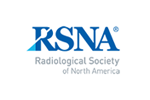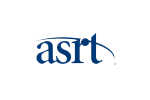COVID-19 Medical Imaging Safety
The Centers for Disease Control and Prevention have issued respiratory virus guidance for patients and medical facilities. This guidance includes common safety precautions such as vaccination, physical distancing, avoiding crowds, wearing a mask, and frequent hand washing.
After receiving the COVID-19 vaccine, some patients may develop enlarged lymph nodes in their underarms. These enlarged nodes can mimic the appearance of serious conditions on mammography or screening breast ultrasound images. However, there is no need to delay chest x-ray or mammography exams in patients who have no symptoms of serious disease.
For more information about breast and chest imaging, see the Mammography and Chest CT pages.
Is it Safe to Have an Imaging Exam Now?
Radiologists and other health professionals share the public’s concerns about safety, especially when it comes to seeking medical care unrelated to COVID-19. The medical community takes precautions to reduce the risk of virus exposure as much as possible.
Talk to your doctor if you have any concerns about seeking medical care or undergoing medical imaging. In most cases, the benefit of medical care and imaging to your overall health far outweighs any possible risk of infection.
Always tell your imaging facility before you arrive if you have any COVID symptoms and if you have been in physical contact with anyone who has COVID-19. This will help staff make your visit as safe as possible for everyone.
If you have COVID symptoms, the imaging staff will likely take extra measures to safely perform your exam. Talk to your doctor if you have any questions about COVID safety or symptoms.
Trusted, recognized sources of credible COVID-19 information may be found at RadiologyInfo.org, the World Health Organization (WHO), and the US Centers for Disease Control and Prevention . For more information, visit:
- Pneumonia (RadiologyInfo.org)
- Chest CT (RadiologyInfo.org)
- Mammography (RadiologyInfo.org)
- US Centers for Disease Control and Prevention: Respiratory Virus Guidance
If you still have questions or concerns about COVID symptoms and/or safety, talk to your doctor and your medical imaging facility staff before your appointment.
This page was reviewed on March 20, 2024



